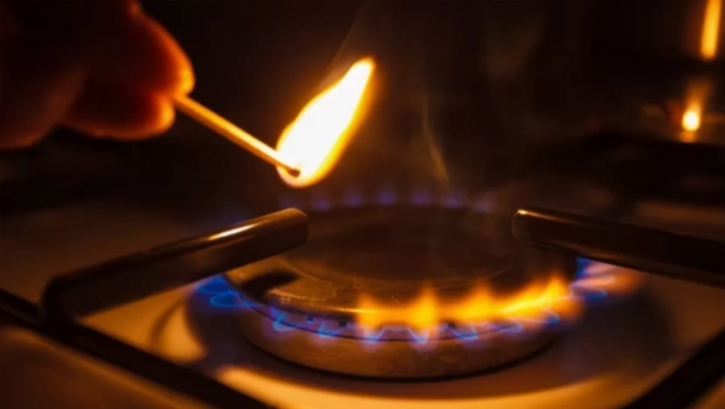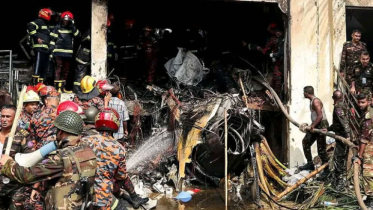
Photo: Collected
Usually, productive industries suffer from gas crises throughout the year. Unfortunately, this time the gas crisis is severely affecting both residential areas and industries due to a decline in LNG supply to the grid following Cyclone Remal on May 27.
Concerned officials informed that the Floating Storage and Regasification Unit (FSRU) with a capacity of 500 mmcfd, owned by Summit Power Ltd, was impacted by Cyclone Remal. Even after 15 days, the FSRU is still under repair.
Consequently, the supply of gas to the national grid has decreased, leading to increased production costs for industries. The transport sector and households are also suffering from the ongoing gas crisis.
According to Petrobangla, gas supply has decreased by 32.72 percent. The country has a daily demand for 4,000 mmcfd of gas, but Petrobangla has been able to supply only 2,700 mmcfd.
The Power Development Board reported that as of February, Summit Power Ltd.'s outstanding bills stood at Tk 1,651 crore.
Executive President of Bangladesh Knitwear Manufacturers and Exporters Association (BKMEA) Muhammad Hatem told the Daily messenger, “Garment is the biggest foreign currency earner of the country. If production declines, export also will decline. Winter is the vital season for the RMG sector. So, we need adequate amount of gas and electricity. But shortage of gas will hamper production and expenditure.”
Mahbubul Alam, President of the Federation of Bangladesh Chambers of Commerce and Industries, told The Daily Messenger, "The government should manage alternative means. Even now, the industries are not getting adequate gas. If the supply declines further, the crisis will worsen, leading to reduced industrial production and increased expenditure."
Mohsena Hassan Summit’s Assistant General Manager, PR and Media told the Daily Messenger “During the cyclone Remal, a broken stray steel structure weighing hundreds of tons banged the Summit LNG Terminal, causing significant damage. The impact sheared the vessel's outer hull, approximately one metre below the waterline, leading to water ingress into the ballast tanks. Despite the severe monsoon conditions, the crew, operators, and owners of the vessel, along with the Summit team, worked tirelessly day and night to secure the vessel and its LNG cargo. Their bravery and relentless efforts successfully prevented the loss of the cargo.”
According to assessments by Bureau Veritas, certification societies and international inspectors, the vessel is now ready to discharge all onboard LNG before proceeding to a dry dock in either Singapore or the Middle East for necessary repairs.
“This unfortunate incident was mitigated by the grace of Almighty and the hard work of Rupantarita Prakritik Gas Company Limited (RPGCL), customer Petrobangla, the Summit LNG team, our port service operators PSA Marine, and the vessel provider Excelerate. Due to their diligence, a major accident was averted. The Summit LNG Terminal is expected to return to Bangladesh after repairs, hopefully within three weeks,” she said.
Gas problem has increased in many areas of Old Dhaka, Mohammadpur, Mirpur, Rampura, Moghbazar, Jatrabari. Distribution company Titas says the crisis has worsened due to less supply than demand.
Import of liquefied natural gas (LNG) is not being increasing, even, supply of domestic gas to meet the shortfall cannot be increased soon. In this situation, an initiative has been taken to repair a floating LNG terminal at Maheshkhali.
A Petrobangla official said, “It is the reality that domestic gas is depleting very fast but we have arranged fuel for the power plants from abroad in LNG form. We have signed agreements to import LNG with Oman, Qatar. The LNG will come by 2026.”
Messenger/Fameema








